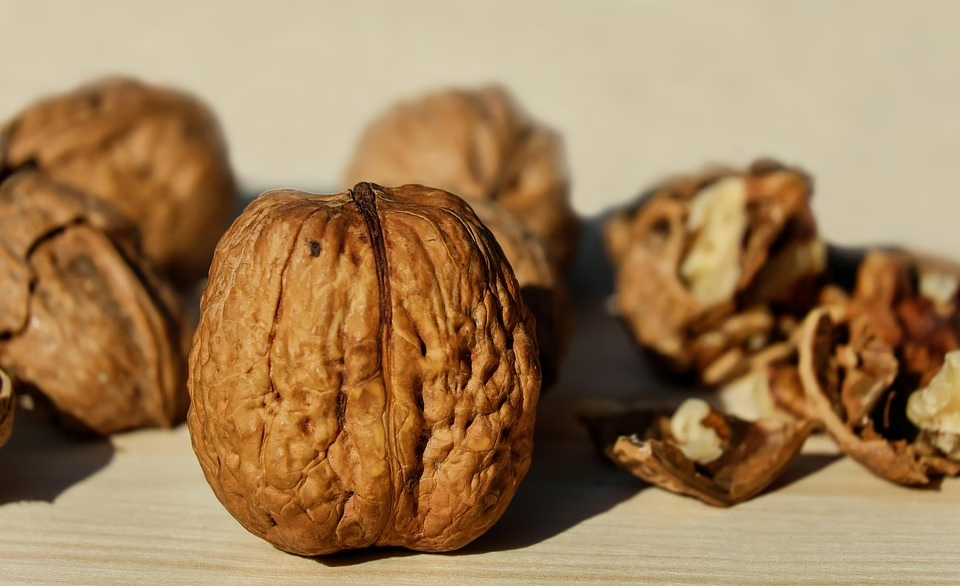The Complete Guide to Protein-Rich Foods for Every Dietary Preference
Introduction
Protein is one of the three macronutrients essential for human health, playing a critical role in building and repairing tissues, producing enzymes and hormones, and maintaining a healthy immune system. With increasing awareness of dietary health, the quest for protein-rich foods has taken center stage across various dietary preferences, from omnivorous to vegetarian to vegan and beyond. This comprehensive guide delves into protein-rich foods tailored for every dietary preference, highlighting their benefits and sources.
Understanding Protein
What is Protein?
Proteins are large, complex molecules made up of amino acids, which are the building blocks of body tissues. There are 20 different amino acids, nine of which are essential, meaning they must be obtained through diet.
Sources of Protein:
- Animal-based sources: meat, fish, eggs, and dairy
- Plant-based sources: legumes, nuts, seeds, and certain grains
Daily Protein Requirements
Protein requirements vary based on age, gender, and activity level. The Recommended Dietary Allowance (RDA) for adults is approximately 0.8 grams of protein per kilogram of body weight. However, athletes and pregnant or breastfeeding women may require more.
Benefits of Protein
- Muscle Repair and Growth: Essential for recovery after workouts.
- Weight Management: Helps to feel fuller, reducing overall calorie intake.
- Bone Health: Plays a role in maintaining bone density.
- Hormonal Balance: Involved in the production of various hormones.
- Immune Function: Important for the production of antibodies.
Protein-Rich Foods for Different Dietary Preferences
1. Omnivorous Diet
For those who consume both animal and plant-based foods, there is a wide range of protein-rich options available.
Sources of Animal Protein
- Meats: Beef, pork, lamb, and poultry (chicken, turkey).
- Fish and Seafood: Salmon, tuna, mackerel, and shrimp.
- Dairy Products: Milk, yogurt, and cheese.
- Eggs: Whole eggs and egg whites.
Popular Protein-Rich Meals
- Chicken Stir-Fry: Chicken breast stir-fried with vegetables and served over quinoa.
- Beef Tacos: Ground beef seasoned and served with whole-grain tortillas.
- Fish and Roasted Vegetables: Salmon fillet baked with a variety of vegetables.
2. Vegetarian Diet
Vegetarians exclude meat but may include dairy and eggs in their diets.
Sources of Vegetarian Protein
- Legumes: Lentils, chickpeas, black beans, and kidney beans.
- Dairy Products: Cheese, yogurt, and milk.
- Eggs: Clucking sources of high-quality protein.
- Whole Grains: Quinoa, bulgur, farro, and oats.
- Nuts and Seeds: Almonds, peanuts, chia seeds, and hemp seeds.
Popular Protein-Rich Meals
- Veggie and Quinoa Bowl: Quinoa mixed with roasted vegetables and a tahini dressing.
- Chickpea Salad: Chickpeas, cucumbers, tomatoes, and feta cheese.
- Egg Frittata: Whipped eggs cooked with spinach and peppers.
3. Vegan Diet
Vegans avoid all animal products, relying entirely on plant sources for their protein intake.
Sources of Vegan Protein
- Legumes: Beans, peas, and lentils.
- Soy Products: Tofu, tempeh, and edamame.
- Nuts and Seeds: Cashews, walnuts, pumpkin seeds, and sunflower seeds.
- Whole Grains: Brown rice, quinoa, barley, and oats.
- Plant-Based Protein Powders: Pea protein, brown rice protein, and hemp protein.
Popular Protein-Rich Meals
- Tofu Stir-Fry: Tofu sautéed with vegetables and served over brown rice.
- Lentil Soup: Hearty lentil soup with carrots, celery, and spices.
- Chickpea Curry: Chickpeas cooked in coconut milk and spices, served with rice.
4. Pescatarian Diet
Pescatarians consume fish and seafood but exclude other meats.
Sources of Pescatarian Protein
- Fish: Salmon, tuna, and cod.
- Shellfish: Shrimp, crab, and mussels.
- Dairy Products: Cheese and yogurt.
- Eggs: High in protein and versatile in cooking.
- Plant-Based Options: Legumes, nuts, seeds, and whole grains.
Popular Protein-Rich Meals
- Grilled Salmon Salad: Salmon over mixed greens with varied toppings.
- Seafood Paella: Rice dish with fish and shellfish.
- Shrimp Tacos: Grilled shrimp served in corn tortillas with toppings.
5. Flexitarian Diet
Flexitarians primarily eat a vegetarian diet but occasionally include meat or seafood.
Sources of Protein for Flexitarians
- Meat and Fish: Minimal use of chicken, turkey, fish, and beef on occasion.
- Legumes: Rich sources of protein that are a staple.
- Dairy and Eggs: Include yogurt, cheese, and eggs regularly.
- Whole Grains and Vegetables: Complement protein sources and contribute to overall health.
Popular Protein-Rich Meals
- Mediterranean Bowls: Brown rice with grilled chicken, hummus, and tabbouleh.
- Omelet: Egg-filled with vegetables, cheese, and herbs.
- Vegetable Pizza: Whole grain crust topped with tomatoes, spinach, mushrooms, and a sprinkle of cheese.
6. Low-Carb/Keto Diet
Low-carb diets emphasize protein and fats while minimizing carbohydrate intake.
Sources of Low-Carb Protein
- Meat: Beef, chicken, pork, and lamb.
- Fish and Seafood: Fatty fish like salmon and sardines.
- Dairy: High-fat cheese and yogurt.
- Nuts and Seeds: Almonds, walnuts, and sunflower seeds.
- Eggs: A cornerstone of the keto diet, versatile for any meal.
Popular Protein-Rich Meals
- Grilled Chicken with Avocado Salsa: Chicken breast paired with avocado, cilantro, and lime.
- Egg and Spinach Muffins: Baked egg muffins with cheese and spinach.
- Shrimp and Zucchini Noodles: Pairing shrimp with spiralized zucchini.
7. High-Protein Diet
For individuals looking to increase their protein intake significantly, a variety of high-protein options are available.
Sources of High-Protein Foods
- Lean Meats: Turkey and poultry cuts.
- Fish: Tuna and mackerel.
- Legumes: Lentils and black beans.
- Protein Powders: Whey, casein, and plant-based options.
- Greek Yogurt: Higher protein content than regular yogurt.
Popular Protein-Rich Meals
- High-Protein Smoothie: Blending protein powder with fruit and spinach.
- Seared Tuna Salad: Tuna steak on a bed of mixed greens.
- Baked Chicken Breast: Seasoned chicken breast roasted and served.
Conclusion
Understanding the diverse sources of protein allows individuals to make informed dietary choices, catering to personal preferences and nutritional needs. Whether you follow an omnivorous, vegetarian, vegan, pescatarian, flexitarian, low-carb, or high-protein diet, a wealth of protein-rich options exists to support a balanced and healthy lifestyle. As protein continues to play a vital role in health and wellness, incorporating a variety of protein sources can enhance both meal enjoyment and nutritional benefit.


























Add Comment